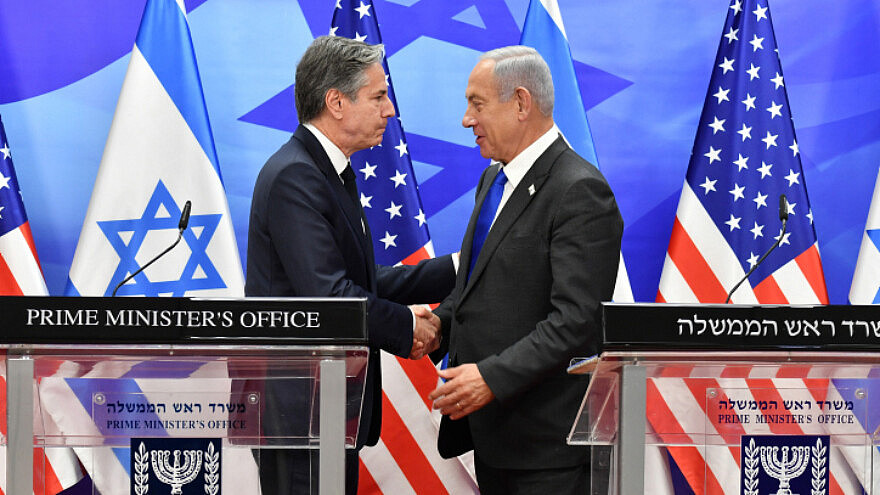In the May 2 press briefing at the U.S. State Department, a spokesman dodged a reporter’s question about whether Secretary of State Antony Blinken would meet with Israeli Prime Minister Benjamin Netanyahu should the latter come to Washington.
The White House has said that it has no plan to host Netanyahu, and John Kirby, U.S. National Security Council spokesman, said that he is aware of House Speaker Kevin McCarthy’s comments that he would invite Netanyahu if Biden does not.
“I’m not going to engage in a hypothetical,” he said.
“We obviously remain in close touch with our Israeli partners at all levels. What I will also say is that the president and the White House have spoken to this a great deal before. I don’t have anything additional to add,” he said. “Our relationship and our partnership with Israel is deep-rooted. We were one of the first countries to recognize Israel when it was founded as a country, and so as the White House has said, we will continue to engage them, and I don’t have any visits or anything to preview.”
Arikat noted that Khader Adnan, who was a senior Palestinian Islamic Jihad operative, had died in jail in Israel following a long hunger strike.
“Do you have a view on this? Do you have a position on Palestinian political prisoners that go on hunger strikes? Many of them do—that many of them get close to dying. There has been like 237 Palestinian political prisoners who have died in Israeli prison,” said Arikat.
Patel stressed that Foggy Bottom has “deep respect for human rights” and believes “all individuals, including prisoners, should be treated humanely.”
“What I will also note, Said, is the Palestinian Islamic Jihad is a designated Foreign Terrorist Organization, and as we have seen with today’s rocket attacks, this group continues to advance violence,” he added.
Arikat persisted, asking why prisoners are “held in limbo endlessly under administrative detention” and if the State Department has a position on “this horrible practice of administrative detention of Palestinians by your ally that you spoke about so greatly just a minute ago—by your ally Israel?”
Patel referred Airkat to the Israeli government to comment on its own policies. Several interruptions later, Patel said, “Again, that is for the Israeli government to determine. I don’t have anything to offer on that.”


























